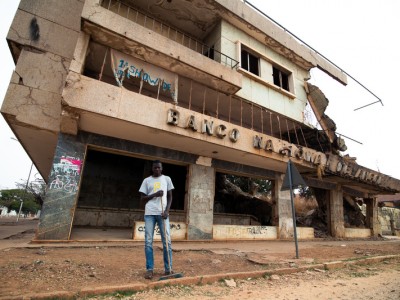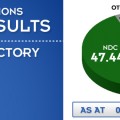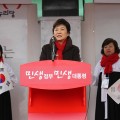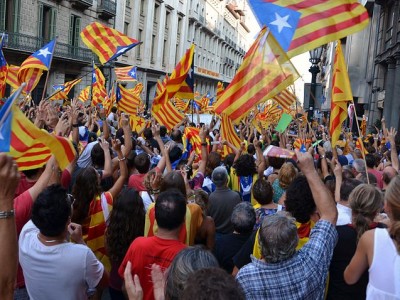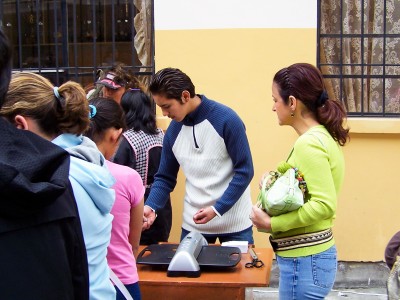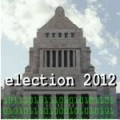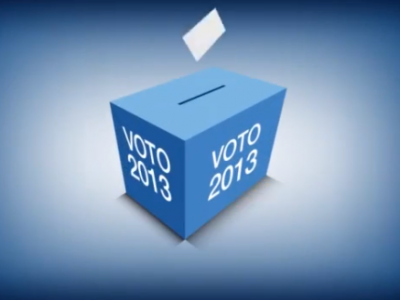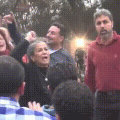Stories about Elections from December, 2012
Year of Change in Angola, But Everything Stays the Same
Global Voices coverage of Angola in the past twelve months saw a collision between the path of development of one of the fastest-growing economies of the world with grassroots demands for a better life and a freer voice.
Opposition NPP Takes Ghana Presidential Election Results to Court
The largest opposition party in Ghana, NPP, has refused to accept the presidential election results. On 9 December 2012, the Electoral Commission declared President Mahama winner by 50.70% of the votes, beating his main challenger Nana Akufo-Addo of the NPP. NPP formally filed a petition at the Supreme Court on 28 December, 2012.
Former Dictator's Daughter Elected As President of South Korea
On December 19, 2012, Park Geun-hye was elected as the next President of South Korea. She is from the ruling conservative Saenuri party and daughter of the former dictator Park Chung-hee. Despite Park's feat in being elected as the first woman president in a largely patriarchal society, young progressives and activists are strongly opposed to Park.
Caribbean: What Happened in 2012 (Part 1)
This year, events in the regional blogosphere were curiously bookended by hunger strikes. Part 1 of this 2012 recap takes a look at the topics that most shaped online discussion in the Bahamian, Cuban and French-speaking Caribbean blogospheres.
Gujarat Polls 2012 – An Analysis
Offstumped posts an analysis on the recently concluded phase 1 of the assembly elections in the Indian state of Gujarat.
Reserved Seats For Women, Good Or Bad?
Salman Latif exposes the flawed arguments in favor of reserved seats for women in the Pakistan National Assembly.
Catalonia: Independence from Spain to Do What?
It appears that Catalonia is now set to hold a referendum on its ties to the rest of Spain. Could an independent Catalonia lead to the break-up of the establishment dynamics that have dominated Spain since the late-1970s? The optimists believe so.
Ecuador Creates Electoral ‘Code of Conduct’ for Social Media
The National Electoral Council of Ecuador unveiled a new Code of Conduct for social networks and digital media. Aimed at political stakeholders and ordinary citizens, the goal is to promote an environment of mutual respect and ideological tolerance.
In Egypt, the Silent Majority is Still Silent
Egyptians went to the polls to vote on a new constitution, being pushed for and supported by president Mohamed Morsi and his Muslim Brotherhood Freedom and Justice Party. The first round shows that about 57 per cent of the voters are in support of the constitution, despite concerns from civil society and the opposition that the new constitution, shaped by Islamists, aims to limit freedoms, cement the role of the military, and the further the Islamisation of Egypt. The second round of this two-stage referendum takes place on Saturday.
Hungarian Blogger Leaks Secret Video on Illegal Voter Database
Gery Greyhound published a documentary [hu] on his Tumblr blog, about the ‘making of’ an illegal voter database in Pécs in 2009, when the city held a mid-term mayoral election. A similar leak took place in...
Election Laws Hinder Japan's Political Online Activity
While Japanese citizens enjoy considerable Internet freedom, in times of election, things are little different due to Public Offices Election Act that restricts publication of political messages.
Ecuador Gets Ready for the 2013 Elections
Ecuadorian netizens are already analyzing candidates for the legislative and presidential elections of February 17, 2013. Many share their reports and reactions under the hashtag #EleccionesEc on Twitter.
#Nimeregister Campaign to Promote Voter Registration in Kenya
As the deadline for voter registration exericise approaches, Kenyans on Twitter are using #nimeregister hashtag to encourage each other to vote and share voter registration information, experiences and photos. Nimeregister is a combination of Swahili and English, which means "I have registered."
Egypt: “Which Article of the Constitution Are You Objecting?”
Recent events in Egypt demonstrate the deepening rift between the ruling Muslim Brotherhood (MB) and an increasing proportion of the population. Rayna St is bringing us up-to-date with the situation on the ground days ahead of a referendum on a controversial constitution.
Japan's First Live Streamed Political Debate
On November 29, 2012, Nico Nico Douga hosted Japan's first live-streamed political debate. Presidents from ten different parties joined the debate, which faced its own unique challenges.
Romania's General Election Results “As Expected”
The Economist's Eastern Approaches and Bucharest Life comment on the results of the Dec. 9 parliamentary elections in Romania.
Egypt's Opposition to Boycott Constitution Referendum Vote
Egypt's opposition coalition the National Salvation Front said tonight (Dec 9, 2012) they would boycott a referendum on a new constitution, scheduled for Saturday (Dec 15, 2012). Their rejection for...
Sounding the Alarm on Hungary's New Electoral Law
Hungarian Spectrum posts an English translation of the appeal by the members of the pre-1989 Democracy Movement to organizations of the European Union, in which they share their concerns regarding...
Slovenia: “Second Republic (Again)”
Sleeping With Pengovsky explains the current political situation in Slovenia (more – here and here): […] [PM Janez Janša] already controls the parliament. He controls the economy. And as of...
Review of South Korea's First Presidential Debate
South Korea's presidential election is just right around the corner and three top contenders had their first heated TV presidential debate. The Marmot's Hole blog wrote a review of the...
Ghana Election 2012, From the Ballot Box
Ghanaian voters went to the polls today to elect a new president and parliament. The main presidential contenders are the current president John Dramani Mahama representing the ruling National Democratic Congress (NDC) and Nana Akufo-Addo of the main opposition New Patriotic Party (NPP).

